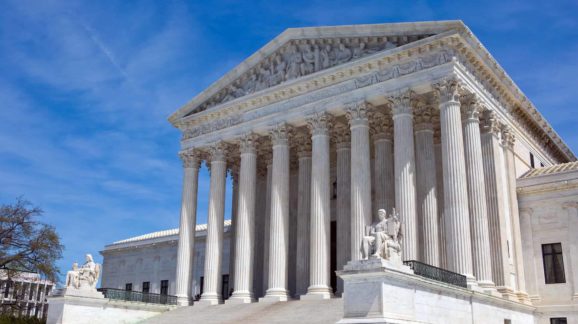A Jury Trial Must Precede Fines and Occupational Banishment

Photo Credit: Getty
Imagine that the government has accused you of wrongdoing that you didn’t commit. You would expect a jury of your peers to recognize your innocence. But what if no jury was allowed and only someone selected by federal prosecutors decides your fate? That is, sadly, what occurs far too often today. As we argued in a brief filed today, the Supreme Court has a chance to change that.
Although criminal defendants are generally allowed jury trials, civil defendants often don’t get the protection they deserve. Civil cases don’t involve jail time, but when the government takes your life savings and prohibits you from practicing your occupation, that is no small matter.
The Seventh Amendment protects the right to a civil jury. It requires that “In Suits at common law, where the value in controversy shall exceed twenty dollars, the right of trial by jury shall be preserved.”
In the modern era, the federal government has argued that the phrase “in suits at common law” means only lawsuits in courts. When the government established “administrative forums,” it claimed that they are exempt from the jury trial requirement. Those administrative forums have the power to ruin your life.
The government claims these cases concern “public rights” in which the government is the plaintiff—which makes that kind of case an exception to the Seventh Amendment. But the government’s theory is contrary to the history of the Seventh Amendment.
At America’s founding, juries composed of American colonists refused to enforce unjust English laws. In response, the British government stripped away the right to a jury trial by transferring civil cases of customs and trade violations to the vice-admiralty courts—which had no juries. Instead, the British governor selected the official who decided the case, and the fines these officials issued paid their salaries.
The purpose of the Seventh Amendment was to prevent a repetition of this mockery of justice. Those cases in vice-admiralty courts were understood as “public rights” cases concerning customs and trade law violations in which the government was a party.
Those “public rights” proceedings, held without the moderating influences of everyday citizens on juries, were part of the long train of abuses that pushed the Founders to revolution. The Declaration of Independence explained that depriving the colonists of the benefits of trial by jury was a spur of the American Revolution. That deprivation sparked the Seventh Amendment. The “public rights” exception that the government now flourishes denies the very reason that the Seventh Amendment exists.
The Seventh Amendment “preserves” the right to a jury trial in civil courts when the amendment was ratified. Transferring those cases out of civil courts to forums without a jury means that the right that the Seventh Amendment is supposed to protect is no longer preserved.
The Securities and Exchange Commission accused Jarkesy of a kind of fraud that was well known to the Founders. Such matters were regularly heard in civil courts when the Seventh Amendment was ratified—and, back then, a defendant accused of such things was entitled to a jury. As such, when the government alleges such fraud today, this should not deprive Jarkesy of a jury trial.
The SEC levied a fine against Jarkesy and stripped him of his right to a lawful occupation. Both of those punishments required a jury, but none was allowed. The Supreme Court can restore the right to a jury trial when the government accuses someone of wrongdoing in a civil proceeding. We should find out what it decides sometime next spring.